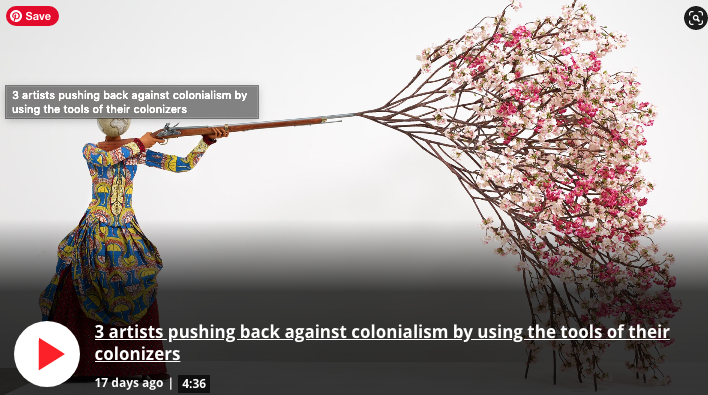This past week I had a lot of time to reflect on the value and place of academic conferences, both in my own experience as a grad student and professor, but also as a ritual event in the world of academia. In the past, I had wondered if all of the expense and energy used to move hundreds of people across the world to one locale for 3-5 days was worth it. Anyone who has ever delivered a conference paper to a room filled with only the panelists and chairs will know this feeling well!
As with most things disrupted by Covid-19, the annual conference for my discipline—the Universities Art Association of Canada—was held remotely and online this year. I had submitted a proposal to co-chair a panel with my research colleague and friend Dr. Lara Tomaszweska of Openwork Art Advisory on the topic of commerce, aesthetics, and the “value” of contemporary art. The conference was to be held in Vancouver this year, and we were excited to host our panelists and introduce them to our city. Last year I attended UAAC to co-chair a panel in Quebec City, and it was an incredible trip filled with immersion in the local art and culture scene, visits to museums, galleries, and urban sites, and lots of incredible local cuisine. And then of course there were all of the conversations, sharing of ideas, and other impromptu discussions in the conference venue hallways, over meals, and even at the airport— these, among the spontaneous ways that academics communicate and learn from one another.
Once we understood the conference would be moved online, I knew that much of that same energy or hard to describe frisson would be lost, and indeed, despite attempts to reproduce the conference virtually, there was something very much missing, an irreplaceable sense of presence that is impossible to duplicate in a Zoom meeting. Here I want to stress that our session panelists provided excellent presentations and arguments—that was never in doubt, and we were incredibly grateful for the opportunities to meet our participants—but what we were not able to do was engage in all of the kinetic and fully embodied rituals of academic discourse and debate that happen only when people are sitting in a room together.
It is only now that I understand how much I have taken this ritual event for granted, and I realize as well that it is this precise sense of lack and sadness I feel when leading synchronous teaching sessions in my courses over my institution’s version of Zoom (BigBlueButton). We all feel what is missing, students and professors alike, and it is deep and profound. In the end, nothing can take the place of simple human contact and exchange in an academic environment. We can certainly attempt to simulate this world in a virtual online format—and it is the best we can during a global pandemic—but all of this technology cannot be made to replace what many of us know to be the only way to truly engage as academics, students, and human beings.
A FEW MORE THINGS BEFORE THE ROUND UP
Last weekend I spent 10+ hours in a car traveling for Canadian Thanksgiving and had a chance to listen to the entire season of Wind of Change, a fantastic podcast debuting this summer that tracks the story of how the song “Wind of Change” by the German heavy metal band Scorpions, was connected to CIA efforts to create pro-democracy propaganda in the wake of the fall of the Berlin Wall and Soviet Bloc. No spoilers, but if you have ever heard the story in your modern art history class of how the CIA propped up Jackson Pollock and Abstract Expressionism as the global art of freedom in the 1950'-60s, you will find this story both familiar and within the realm of possibility!
Speaking of culture, history, and politics, more than a half dozen people whose opinion on all things cultural and of-the-moment I respect have told me to watch Crash Landing On You — a South Korean television series now on Netflix that tells the story of a South Korean fashion entrepreneur and heiress and her love affair with a member of North Korea’s elite police. Yes, you read that correctly, and it is next up for me once I complete all of my midterm grading.










Jenny Holzer launched a new public artwork campaign encouraging voter participation
Think for yourself: how to judge expertise in a time of conflicting opinions
3 artists pushing back against colonialism by using the tools of their colonizers
Feels Good Man, a film that truly gets how things are passed across the Internet
The UK government is trying to draw museums into a fake culture war
Mr Ewok “Game Over", Wall in Wynwood via Museum of Graffiti (VIDEO)

